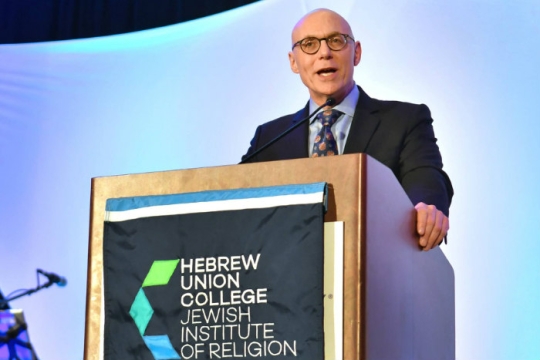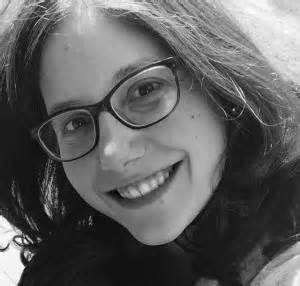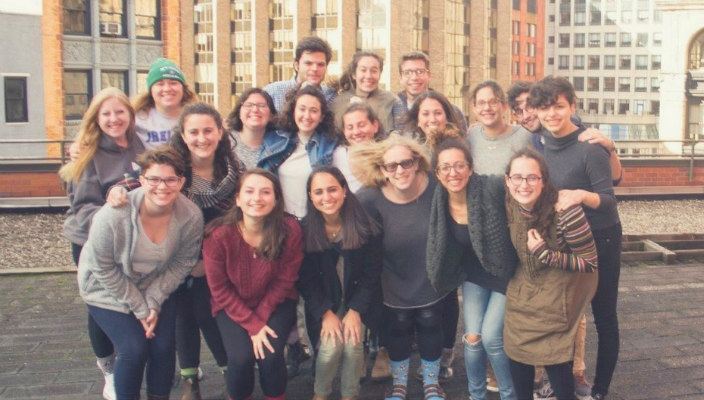
“Boarding the flight to New York, I don’t think I realized I was in for the most emotionally and spiritually intense weekend of my life…I held onto that feeling when I returned to William & Mary [where] my plan was to start a series of monthly student-led Shabbat services, and a monthly discussion on a Jewish topic, to create more challenging and immersive religious programming for our Hillel…”
Alexina Haefner, a student at William & Mary, wrote these words, reflecting on her experience as a Hebrew Union College—Jewish Institute of Religion (HUC-JIR) Founders’ Fellow. Alexina’s project helped new students feel welcome at Hillel, and offered already-involved students avenues to deepen their religious engagement.
HUC-JIR’s Founders’ Fellowship is an idea-incubator that supports Jewish college students to develop or expand a Jewish initiative for their campus. Last year, our eighteen fellows came from schools all over North America, from Montreal, Waltham, New Haven and Austin, to Ann Arbor, Stanford, Claremont, and more.
The best part of the fellowship may be its contagious optimism. As part of the fellows’ applications, they define a challenge on campus and propose an action to address it. Sometimes a situation feels impossible for one student to solve alone; through the fellowship, students find like-minded partners, along with a network of support, to redefine the problem into something they can tackle.
Other times, a challenge can feel hard to define or nebulous, and we work together to pinpoint where the student’s concern is. In some cases, the challenge is clear, and a student has already begun to act.
One thing all of our fellows have in common: they don’t plan to just sit around complaining about their concerns on campus. Instead, inspired by devotion to their schools and Judaism, they are motivated to do something about the challenges they see. The Founders’ Fellowship is designed to help them do just that.
For example, Joe Blumberg, a student at Yale, chose to focus on using music to bring people together Jewishly. He reflects,
“I was looking for new ways to combine my loves of Jewish life and music. … Music has an indescribable ability to bring people together and help forge relationships, and I was anxious to find a way to elevate the musical life of Yale’s Jewish community. The product of these factors [developed through the Fellowship] was the formation of a weekly niggun (wordless song) group. The idea was simple: bring together diverse members of Yale’s Jewish community for an hour of joyful, wordless song.”
Another example: Alona Weimer, a student at Brandeis, described her Founders’ Fellowship project as “a cross-denominational chavruta program at Brandeis University.” She says,
“This project addressed what I saw as a lack on the Brandeis University campus: open, self-guided, accessible, communal Jewish learning opportunities. I decided to name it ‘Jewish Partnered Learning Initiative for Campus Students’ or ‘JP LICS’ which riffs on ‘JP Licks,’ a popular ice cream chain in the Boston area.”
Through Alona’s project, students who wouldn’t have otherwise studied together, engaged in Jewish text study, and often became friends in the process.
Alexina, Joe, and Alona each shared a commitment to bringing people together: to share in building Jewish community, in the beauty of Jewish music, in the love of Jewish study and new friendship, respectively.
The Founders’ Fellows can teach us all about solving the problems in our own communities:
1. We need to find that “can-do optimism” to face challenges and not just complain about them.
We can ask ourselves, “What should we do about that challenge?” or “How can fixing that problem make our community better?” or “Even if I can’t fix the whole issue, what element can I change?” It’s all too easy to abdicate our responsibility in improving our communities, especially if we don’t have a formal leadership position. The Founders’ Fellows prove that this doesn’t need to be the case.
2. Our searches for spirituality and meaning can bring us together.
Each of the fellow’s projects – including their peers in their cohort – was about bringing people together for a shared, spiritual purpose, even if that sense of spirituality was sometimes buried under other layers. We are all seekers, no matter our age, and when we join together in our shared searching, we can create powerful relationships.
3. We need to act radically inclusive, and not just strive for it.
A common theme among the fellows’ initiatives is a commitment to a sense of radical inclusion: of welcoming anyone interested in Jewish practice and thought, of balancing a commitment to the integrity of the Jewish experience with a sense of welcome. So many of the fellows shared stories of feeling like outsiders in their Jewish communities growing up and being motivated to create a warmer community for themselves and the next generation.
Applications arecurrently open for Cohort 4 of the HUC-JIR Founders' Fellowship (2018-2019 academic year). The deadline to apply is September 21, 2018.
Related Posts
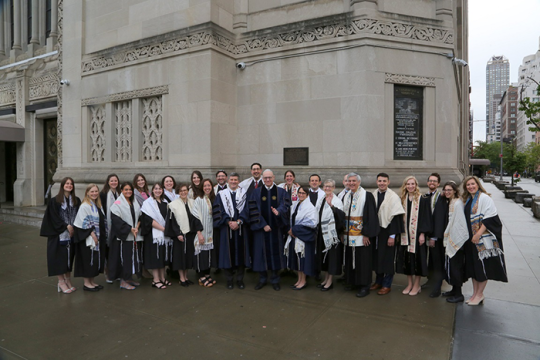
A Year of Strategic Change, Reckoning, and Gratitude
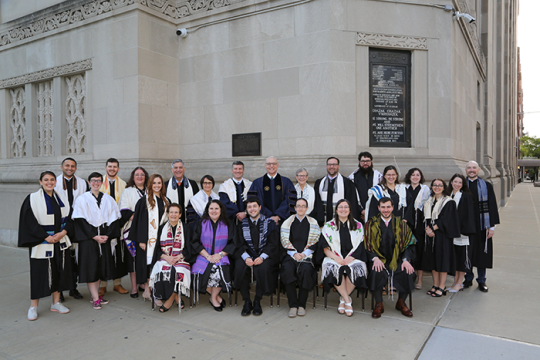
Ordination and Achieving the Highest Ethical Conduct
